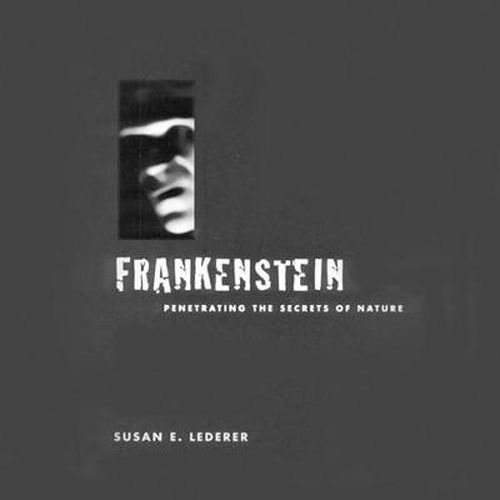Readings Newsletter
Become a Readings Member to make your shopping experience even easier.
Sign in or sign up for free!
You’re not far away from qualifying for FREE standard shipping within Australia
You’ve qualified for FREE standard shipping within Australia
The cart is loading…






As science penetrates the secrets of nature, with each discovery generating new questions, Mary Shelley’s
Frankenstein
will sound its note of warning. And as the pace of scientific progress has increased, so have concerns about retaining control of the new technologies that are reshaping our sense of ourselves as human. Many of these developments have provoked references to
Frankenstein , a story that, for nearly two centuries, has gripped our imaginations and haunted our nightmares. How can society balance the benefits of medical discoveries against the ethical or spiritual questions posed? This title accompanies a travelling exhibit of the same name (the exhibit will be on display at 80 locations across the Unites States from September 2002 to September 2004.) It begins by highlighting Shelley’s novel and the context in which she conceived it. Here, the creature begins as a rational being who, abandoned by his maker, undertakes both a process of self-education and a search for human companionship. His descent into mayhem results from his rage at his creator, his alienation from other human beings, and the continued ill treatment he receives from the people he encounters. The catalogue nexts focuses on the redefinition of the Frankenstein myth in popular culture. Here, the fate of the monster becomes a moral lesson illustrating the punishment for ambitious scientists who seek to usurp the place of God by creating life. The final section examines the continuing power of the Frankenstein story to articulate present day concerns raised by new developments in biomedicine such as cloning and xenografting.
$9.00 standard shipping within Australia
FREE standard shipping within Australia for orders over $100.00
Express & International shipping calculated at checkout
As science penetrates the secrets of nature, with each discovery generating new questions, Mary Shelley’s
Frankenstein
will sound its note of warning. And as the pace of scientific progress has increased, so have concerns about retaining control of the new technologies that are reshaping our sense of ourselves as human. Many of these developments have provoked references to
Frankenstein , a story that, for nearly two centuries, has gripped our imaginations and haunted our nightmares. How can society balance the benefits of medical discoveries against the ethical or spiritual questions posed? This title accompanies a travelling exhibit of the same name (the exhibit will be on display at 80 locations across the Unites States from September 2002 to September 2004.) It begins by highlighting Shelley’s novel and the context in which she conceived it. Here, the creature begins as a rational being who, abandoned by his maker, undertakes both a process of self-education and a search for human companionship. His descent into mayhem results from his rage at his creator, his alienation from other human beings, and the continued ill treatment he receives from the people he encounters. The catalogue nexts focuses on the redefinition of the Frankenstein myth in popular culture. Here, the fate of the monster becomes a moral lesson illustrating the punishment for ambitious scientists who seek to usurp the place of God by creating life. The final section examines the continuing power of the Frankenstein story to articulate present day concerns raised by new developments in biomedicine such as cloning and xenografting.